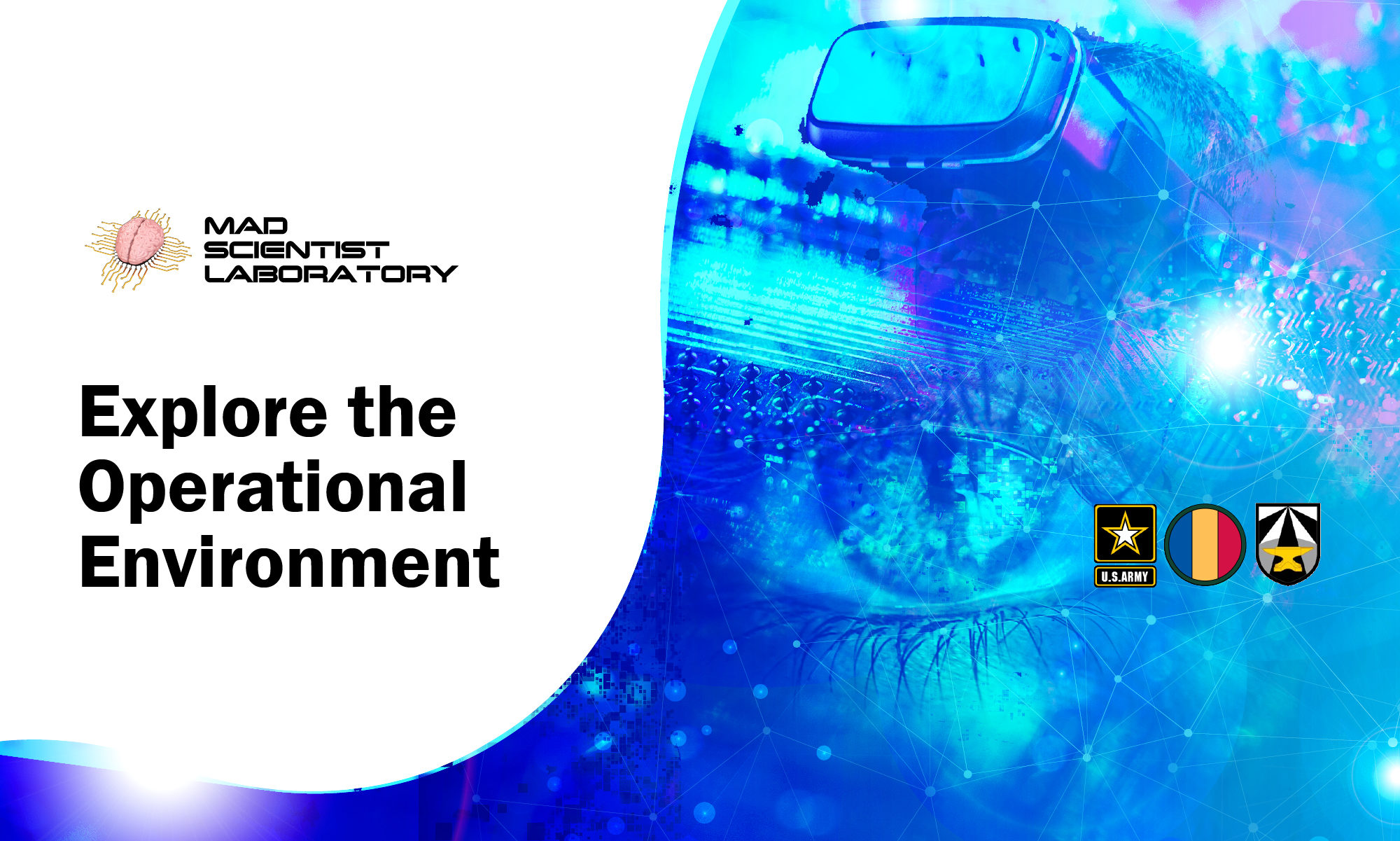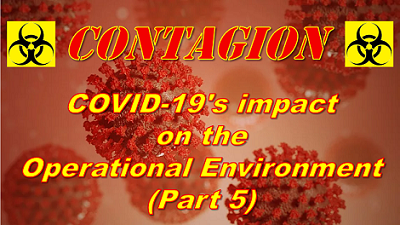[Editor’s Note: Mad Scientist Laboratory’s “Contagion” series of posts continues with returning guest blogger LTCOL Nathan Pierpoint‘s submission, providing a list of questions that the United States and its allies and partners should consider in stabilizing and mitigating the disruptive effects of the COVID-19 Global Pandemic and precluding our adversaries from exploiting circumstances to their advantage. LTCOL Pierpoint describes how the world’s liberal democracies must prepare and position themselves to defend the rules-based global order — countering hostile competitive influences and, as necessary, preparing for armed conflict with any adversary seeking to capitalize on this global crisis.]
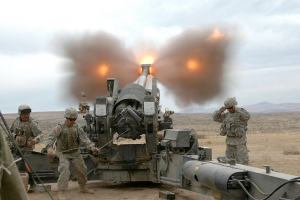 Fighting and winning the next war will depend largely on how we are postured – physically, institutionally, and mentally. The current pandemic should give us some cause to consider how we are postured to fight the next war in more ways than one. Most importantly, what if war breaks out when everyone is sick? This post seeks to explore the vital questions of national security that we should be asking of the government and the military during times of global pandemics like COVID-19.
Fighting and winning the next war will depend largely on how we are postured – physically, institutionally, and mentally. The current pandemic should give us some cause to consider how we are postured to fight the next war in more ways than one. Most importantly, what if war breaks out when everyone is sick? This post seeks to explore the vital questions of national security that we should be asking of the government and the military during times of global pandemics like COVID-19.
The impetus for most nations to manage their internal struggles is entirely appropriate at this stage of the pandemic. Those that have worked at the interagency level can appreciate that navigating policy and budgets is a challenge, and can heavily influence the speed in which governments can react. Attempting to lay blame on internal state or federal institutions is never helpful; rather it should give us cause to consider how we navigate the competition aspects of this crisis. Considering the rise of peer competitors and 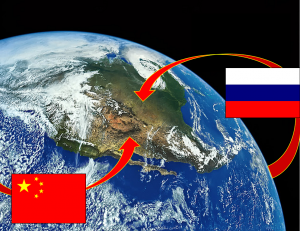 adversaries that seek to degrade our rules-based global order, we should seek to ensure we remain competitive in all domains, regardless of season, weather, terrain, or contagion. In other words, are we prepared to defend our interests against an adversary that is willing to gain and take advantage while we are down?
adversaries that seek to degrade our rules-based global order, we should seek to ensure we remain competitive in all domains, regardless of season, weather, terrain, or contagion. In other words, are we prepared to defend our interests against an adversary that is willing to gain and take advantage while we are down?
As we navigate the current and future-operating environment against these types of threats, we should also consider that this is an important time in the competition ‘phase’ against our adversaries. While I appreciate that competition should not be viewed as a phase, it is prudent to think of it at this point of the pandemic, and our response, as the ‘preparation phase’ in the event an adversary seeks to gain a 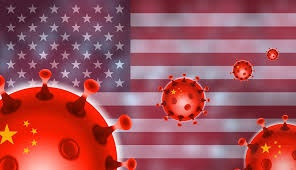 decisive advantage while we are focussed elsewhere. The types of questions we should be asking ourselves include: what are our critical vulnerabilities in our defensive posture at this time? Can we continue to maintain the requisite industrial capacity? Are our critical industries and infrastructure still secure? Would an adversary seek to exploit these vulnerabilities to gain an advantage? Are they postured or even capable of supporting an increase in activity should war break out? Let’s explore these questions in a little more detail.
decisive advantage while we are focussed elsewhere. The types of questions we should be asking ourselves include: what are our critical vulnerabilities in our defensive posture at this time? Can we continue to maintain the requisite industrial capacity? Are our critical industries and infrastructure still secure? Would an adversary seek to exploit these vulnerabilities to gain an advantage? Are they postured or even capable of supporting an increase in activity should war break out? Let’s explore these questions in a little more detail.
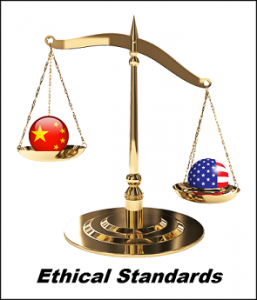 While many would like to think the world is pre-occupied with overcoming the larger medical issues and associated economic instability associated with COVID-19, it’s worth appreciating that many of our adversaries choose not to employ the same ethical standards as us. In this regard, we should consider that it is highly likely that adversaries, having either largely overcome this pandemic, or having managed to stay immune to it (*cough cough*), would seek to identify leverage points for political or military advantage while we are focused on our internal struggles. It’s necessary to explore this issue in more detail.
While many would like to think the world is pre-occupied with overcoming the larger medical issues and associated economic instability associated with COVID-19, it’s worth appreciating that many of our adversaries choose not to employ the same ethical standards as us. In this regard, we should consider that it is highly likely that adversaries, having either largely overcome this pandemic, or having managed to stay immune to it (*cough cough*), would seek to identify leverage points for political or military advantage while we are focused on our internal struggles. It’s necessary to explore this issue in more detail.
First, we need to look at the information environment and determine what messages of strength, security, and stability we are conveying to the broader population. How are our local, state, and federal institutions working together? Do they demonstrate cohesion? How are our large corporations managing the challenge of food and supply shortages? Should we shut our borders? How might this affect the local and international trade and economic stability? Is an economic stimulus package viable? These are big questions we need to have answered very early on in a pandemic because our adversaries will be watching our responses very carefully.
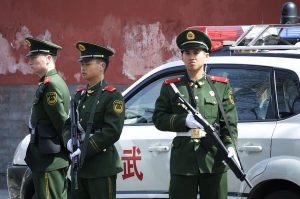 Second, we need to look at how our adversaries have reacted to the crisis as well. How are their internal mechanisms managing the challenges of the pandemic? What are they communicating to the international audience? What are they keeping from the international audience? How could we cooperate with an adversary (an important, but forgotten aspect of competition)? What could we use as leverage for our own political or military advantage? Too often we have let valuable opportunities slip away in the information environment. A coordinated response targeting our adversary’s responses, or lack-thereof, is important information that we can use to better inform the broader international community. It’s important that we get these critical messages right, so our communities are informed of the broader threat that our adversaries pose to our current rules-based global order. To be frank, letting an adversary first overcome a pandemic without either assistance or coordinated response from a coalition such as NATO or the UN, then use cooperative strategies to demonstrate their worth to affected states around the globe, is a failure in our collective ‘competition’ strategies. The accountability of belligerent actions, particularly those of our adversaries, should be again high on the agenda in the early stages of a global pandemic.
Second, we need to look at how our adversaries have reacted to the crisis as well. How are their internal mechanisms managing the challenges of the pandemic? What are they communicating to the international audience? What are they keeping from the international audience? How could we cooperate with an adversary (an important, but forgotten aspect of competition)? What could we use as leverage for our own political or military advantage? Too often we have let valuable opportunities slip away in the information environment. A coordinated response targeting our adversary’s responses, or lack-thereof, is important information that we can use to better inform the broader international community. It’s important that we get these critical messages right, so our communities are informed of the broader threat that our adversaries pose to our current rules-based global order. To be frank, letting an adversary first overcome a pandemic without either assistance or coordinated response from a coalition such as NATO or the UN, then use cooperative strategies to demonstrate their worth to affected states around the globe, is a failure in our collective ‘competition’ strategies. The accountability of belligerent actions, particularly those of our adversaries, should be again high on the agenda in the early stages of a global pandemic.  If we let our adversaries escape this accountability, then transition to cooperative efforts to help the international community, we risk losing the strategic narrative and ultimately the competitive advantage. Losing the narrative and allowing it to transition to cooperative efforts provides a leverage point our adversaries can seek to exploit for years to come in critical forums such as the UN, G8, and G20 summits. Nations then risk becoming ignorant, or complicit to acts that degrade the rules-based global order, based on the assistance and good will generated from previous acts of support. Unfortunately, many nations fail to realise this support never comes free.
If we let our adversaries escape this accountability, then transition to cooperative efforts to help the international community, we risk losing the strategic narrative and ultimately the competitive advantage. Losing the narrative and allowing it to transition to cooperative efforts provides a leverage point our adversaries can seek to exploit for years to come in critical forums such as the UN, G8, and G20 summits. Nations then risk becoming ignorant, or complicit to acts that degrade the rules-based global order, based on the assistance and good will generated from previous acts of support. Unfortunately, many nations fail to realise this support never comes free.
It’s at this point we need to examine what we are doing to prepare our critical national infrastructure and key industries. At the national level, we need to be asking the following important questions:  As a result of this particular pandemic, what should be considered critical infrastructure and industries? Whilst unfortunate largely due to public misinformation, I’m sure most would agree that the toilet paper industry is now in high demand! Hence, a federal approach to ensuring critical foodstuffs and cleaning products are distributed and managed safely (as stupid as it sounds), needs to be developed as a priority. If we continue to allow the current situation to exacerbate, do we have the right mechanisms in place to protect people against violent acts in vital businesses such as supermarkets? Is the transport industry well postured to meet the increased demand and pace at which people require these resources? Can we transition skilled workers into more important industries? How do we manage unemployment? Ensuring our people have the basic necessities to continue daily life, albeit under some restrictions, is vital to our war preparedness efforts. Access to basic supplies allows people to concentrate on their duties to keep vital industries and businesses afloat during critical periods of the pandemic.
As a result of this particular pandemic, what should be considered critical infrastructure and industries? Whilst unfortunate largely due to public misinformation, I’m sure most would agree that the toilet paper industry is now in high demand! Hence, a federal approach to ensuring critical foodstuffs and cleaning products are distributed and managed safely (as stupid as it sounds), needs to be developed as a priority. If we continue to allow the current situation to exacerbate, do we have the right mechanisms in place to protect people against violent acts in vital businesses such as supermarkets? Is the transport industry well postured to meet the increased demand and pace at which people require these resources? Can we transition skilled workers into more important industries? How do we manage unemployment? Ensuring our people have the basic necessities to continue daily life, albeit under some restrictions, is vital to our war preparedness efforts. Access to basic supplies allows people to concentrate on their duties to keep vital industries and businesses afloat during critical periods of the pandemic.
Once we’ve established what those vital businesses are, and provided their workers access to basic supplies, we then need to ask: How many people are needed to keep the site operational? How can we keep the site secure from physical and/or electronic attacks? How do we prepare for an increased work rate 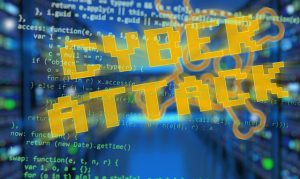 should an adversary see a weakness and seek to engage in conflict? Perhaps most importantly, as many have chosen to “telework” from home, we should ask ourselves: is our national Internet infrastructure prepared for the increased load? Is it safe from cyber-attacks or disruption in order to keep our military and defensive resources operational? It’s necessary that we give these important questions due consideration early during a situation like this. As our state and national infrastructure is weakened by the lack of physical personnel, we should be considering how we maintain (or even enhance) these structures to ensure we do not present targets of opportunity to our adversaries.
should an adversary see a weakness and seek to engage in conflict? Perhaps most importantly, as many have chosen to “telework” from home, we should ask ourselves: is our national Internet infrastructure prepared for the increased load? Is it safe from cyber-attacks or disruption in order to keep our military and defensive resources operational? It’s necessary that we give these important questions due consideration early during a situation like this. As our state and national infrastructure is weakened by the lack of physical personnel, we should be considering how we maintain (or even enhance) these structures to ensure we do not present targets of opportunity to our adversaries.
Finally, and perhaps most importantly, we need to ensure the defensive posture of both our military and security agencies are capable of withstanding competitive influence, and even limited war. As I mentioned before, those adversaries that 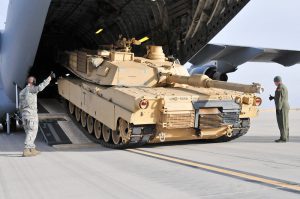 have either not been influenced by the pandemic, or have recently overcome it, might seek to gain critical advantage in competition, or indeed even see a sizeable weakness that could encourage them to engage in limited war. In this sense we should be asking ourselves questions about the activities we should be engaging in as part of competition, and how we posture for limited war.
have either not been influenced by the pandemic, or have recently overcome it, might seek to gain critical advantage in competition, or indeed even see a sizeable weakness that could encourage them to engage in limited war. In this sense we should be asking ourselves questions about the activities we should be engaging in as part of competition, and how we posture for limited war.
During competition, we should be seeking answers to important questions like: How do we maintain our competitive advantage whilst minimising the threat of the virus to our troops? What might we need to do differently so that we can maintain this advantage? Do our partners need assurance and assistance? What nations are at greatest risk to either the virus or competitive pressure from an adversary? Where can we take budgetary risk from activities not being undertaken, or modernisation projects that can accept delay, to strengthen our defensive posture? What might our adversaries be doing now to improve their competitive influence? 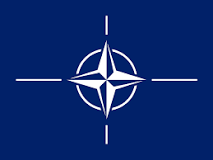 By answering these questions we start to realise the renewed importance of alliances and partnerships, sharing vital information, and understanding the non-traditional means our adversaries are using to degrade our influence across the globe.
By answering these questions we start to realise the renewed importance of alliances and partnerships, sharing vital information, and understanding the non-traditional means our adversaries are using to degrade our influence across the globe.
Should an adversary seek to gain a strategic advantage though military means, we need to give serious consideration to what they are doing, and our posture and preparedness for another war. Key questions to be answered include: What might our adversaries be doing now to prepare for conflict? Should an adversary seek to gain an advantage by engaging in conflict, what capacity do we have to respond? How are we communicating our military’s resilience, strength, and willingness to support the domestic and international communities? These are all important questions we should have answered during contingency planning as part of our national defence strategies, and if they haven’t been, they need to be answered immediately.
In the event we do have to go to war to protect our interests, we need to carefully consider not just our preparation, but how we continue to fight in the midst of a pandemic. It’s useful to consider then: If this is to be a limited war, what are our limited aims? If this is a total war, how quickly can we generate the capacity to win a war of attrition? How much of the military is required to engage in this conflict? How do we keep them ‘immune’ from the virus whilst still maintaining the capacity to fight? Much of the professional discussion in recent years has revolved around future conflicts in megacities [N.B., Check out TRADOC’s new TP 525-92-1, The Changing Character of Warfare: The Urban Operational Environment]. 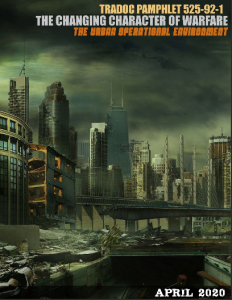 If we were to engage in conflict against an adversary in the middle of a global pandemic, we need to also give serious consideration to how we might need to conduct operations within a megacity heavily affected by a virus. Do we have the equipment now to protect our soldiers from the virus? How quickly can we get the equipment required to keep them safe? What is the fighting capacity of units affected by the virus? How many cases can our military’s medical system manage? Would an adversary seek to promote the spread of the virus for their own gain? Answers to many of these questions will cross ethical boundaries. We need to prepare for war against an adversary that does not have the same ethical standards as we do. How we can contend against this, and how we maintain the ethical upper hand with our international audience?
If we were to engage in conflict against an adversary in the middle of a global pandemic, we need to also give serious consideration to how we might need to conduct operations within a megacity heavily affected by a virus. Do we have the equipment now to protect our soldiers from the virus? How quickly can we get the equipment required to keep them safe? What is the fighting capacity of units affected by the virus? How many cases can our military’s medical system manage? Would an adversary seek to promote the spread of the virus for their own gain? Answers to many of these questions will cross ethical boundaries. We need to prepare for war against an adversary that does not have the same ethical standards as we do. How we can contend against this, and how we maintain the ethical upper hand with our international audience?
Nations and governments are slowly starting to answer these questions as the globe attempts to manage COVID-19.  There are some very important lessons we should be learning from this experience; national security strategies need to be adjusted, domestic policies need to be adapted, and local communities need to learn how to be better-informed and resilient to pandemics like this in the future. Our adversaries are learning, too. They are watching how we have reacted internally, how governments have managed the crisis, what industries and businesses are remaining stable, and which are crumbling under the economic pressure. They are also closely monitoring how we are managing the security of our vital infrastructure, our economy, and perhaps most importantly, what we are doing with our armed forces and security agencies to keep them operational. Let’s hope we learn the right lessons from this experience before it’s too late.
There are some very important lessons we should be learning from this experience; national security strategies need to be adjusted, domestic policies need to be adapted, and local communities need to learn how to be better-informed and resilient to pandemics like this in the future. Our adversaries are learning, too. They are watching how we have reacted internally, how governments have managed the crisis, what industries and businesses are remaining stable, and which are crumbling under the economic pressure. They are also closely monitoring how we are managing the security of our vital infrastructure, our economy, and perhaps most importantly, what we are doing with our armed forces and security agencies to keep them operational. Let’s hope we learn the right lessons from this experience before it’s too late.
If you enjoyed this post, check out the preceding ones in the Contagion: COVID-19’s impact on the Operational Environment series:
Part 1, by Chris Elles
Part 2, by Kat Cassedy
Part 3, by Vikram Venkatram and Dr. James Giordano.
Part 4, by Ian Sullivan
… as well as Climate Change as a Threat Multiplier, by LTCOL Nathan Pierpoint.
LTCOL Nathan Pierpoint is a career Military Police Officer, having recently completed Battalion Command prior to his appointment as the Australian Army Liaison Officer to HQ TRADOC in 2019. He has also spent time as an instructor, served regularly as a staff officer in the Australian Army Headquarters, and has completed tours of Timor Leste, Iraq, and Afghanistan. LTCOL Pierpoint has a BA in Politics through the University of New South Wales, and a Masters in Defence and Strategic Studies through the Australian National University.
Disclaimer: The views expressed in this blog post are those of the author, and do not necessarily reflect those of the Department of Defense, Department of the Army, Army Futures Command (AFC), or Training and Doctrine Command (TRADOC).
